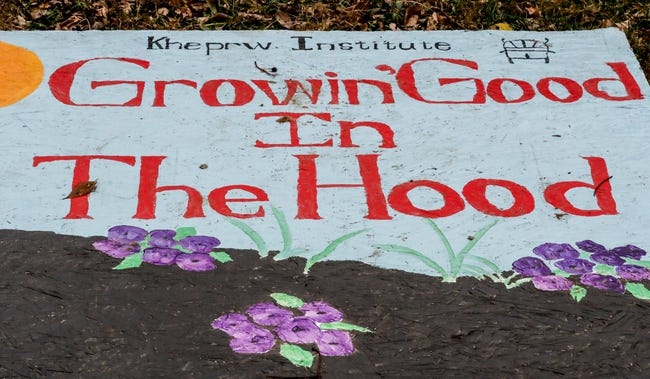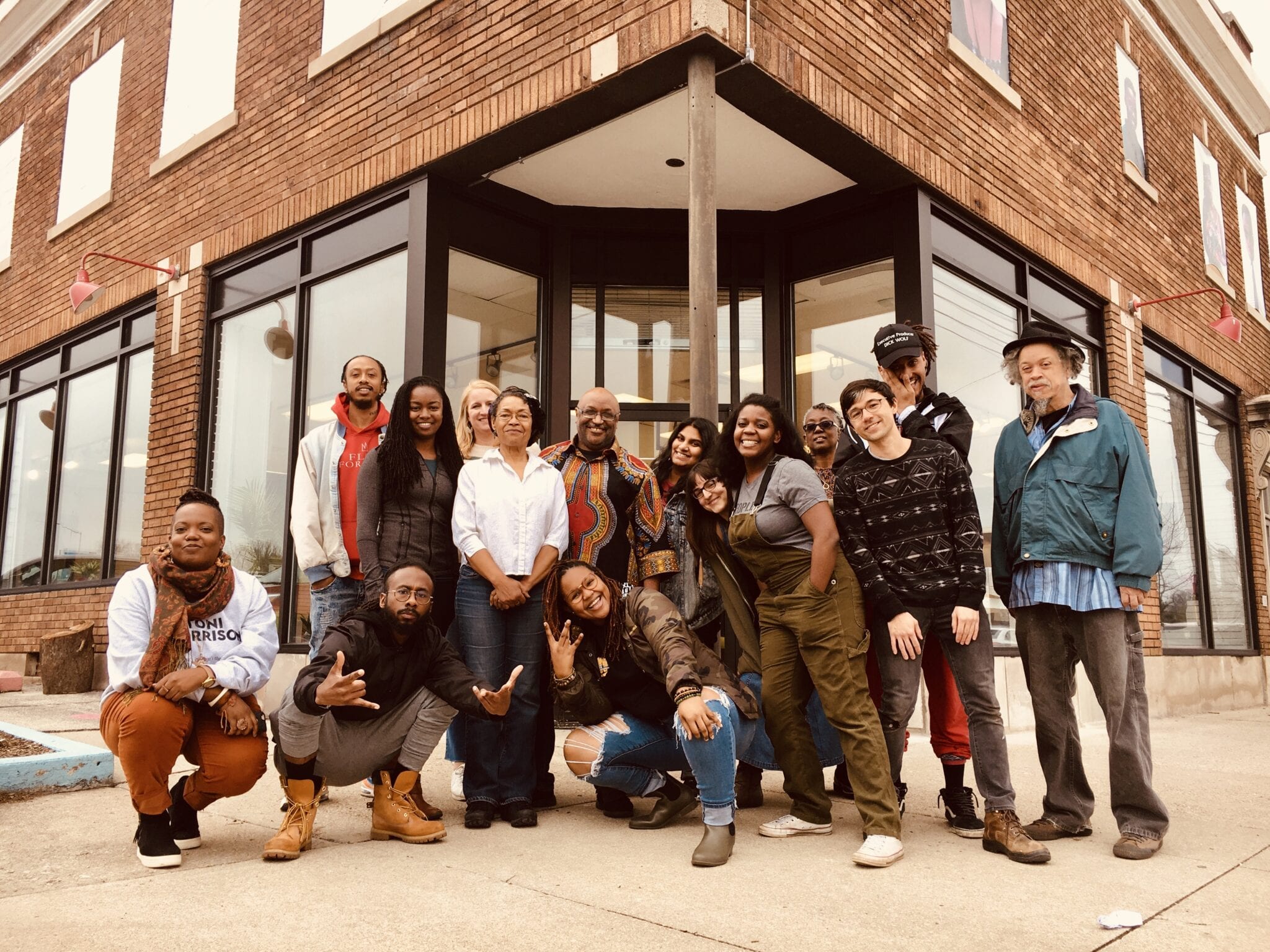Founded in 2003 by Paulette Fair, Pambana Uishi, and Imhotep Adisa, the Kheprw Institute (KI) is a grassroots community organization that focuses on community empowerment through self-mastery by concentrating on youth leadership development. It began as an after-school initiative for neighborhood youth in need of mentoring and economic opportunities.

From the beginning, jobs and opportunities were tied to participants’ academic performance. Soon KI’s founders launched different programs to help develop leadership and entrepreneurial training. They reached out to local schools to gather other African American males into the program to provide mentoring, work readiness, entrepreneurial, and critical-thinking skills. These initiatives led to the birth of KI as an organization.
In its programming, the Kheprw Institute engages through “The Four E’s:” Empowerment, Economy, Education, and Environment. Its name and logo, from the Kemetic word for the scarab beetle, kh(pr), is an Egyptian deity that represents rebirth and renewal. The head of the deity is the scarab beetle. In Egyptian cosmology, the scarab represents rebirth and transformation. The scarab beetle lays its eggs in dung, from which they emerge when born. The ancient Egyptians associated the scarab with rebirth, renewal, transformation, and resurrection, which KI sees as symbolic of its work in human transformation: Perceived waste can be fertile ground for life, and opportunities can always be found.

The philosophies of KI also were born out of cultural Pan-Africanism and people-centeredness, thus its mantra—“Community Empowerment through Self-Mastery.” Pan-Africanist principles that involve cooperative business models and communal living as a lifestyle guide KI’s work. Convened community events embody the principles of Kwanzaa as well as the underlying philosophies of Malcolm X, Marcus Garvey, Fanner Lou Hamer, and thinkers from movements grounded in socioeconomic development and cultural identity shift.
Kheprw has grown into an organization serving hundreds of diverse people, using a variety of social enterprises, such as the Good Stuff Thrift Store (2004-2009), KI Paint (2006-2010), and 317 Media Café (a fair-trade coffee café with free Internet access, 2006-2012), to train youth and fund the organization. Founded by intergenerational teams, these social enterprises are key to the organization’s approach. Other KI social enterprises include Express Yourself Rain Barrels, which engages youth in the construction, marketing, and sales of custom-made rain barrels; KI NuMedia, a web, social media, and graphic design company; Africhart Products, which sells charts that depict history from an African perspective; We Run This, a catering company that teaches culinary skills to youth; and Scarabys Consulting, LLC, a consulting company that teaches and shares the lessons of the pillars of the KI model—social capital, relationships, and developing an entrepreneurial mindset.
The Kheprw Institute also hosts a variety of community conversations, discussing critical issues of race, equity, and justice to help establish relationships, build and support community engagement in initiatives that impact communities. KI works with national and local neighborhood/community organizations at a grassroots level to strive toward solutions to challenges the community faces.
In 2019, KI launched two major new initiatives: Café Creative, a space for artists to create, perform, and build lasting relationships, and the Kheprw Entrepreneurial Incubator, co-working office space and consulting services designed to build community wealth and help entrepreneurs build social, intellectual, and financial capital.
KI’s effort to build community wealth extends to its Homes for All Indy community land trust initiative, the local chapter of Homes for All. In 2022 the city of Indianapolis announced its plan to spend $1.5 million on KI’s initiative that aims to prevent gentrification, promote home ownership, and build community among low and middle-income earners. After KI selects the location and establishes the policies governing the trust, an independent organization will assume its stewardship.

Help improve this entry
Contribute information, offer corrections, suggest images.
You can also recommend new entries related to this topic.